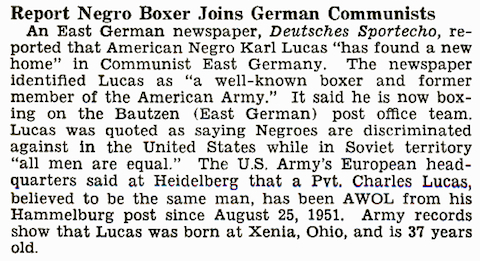Brendan I. Koerner's Blog, page 34
October 11, 2011
Have Boot, Will Travel
 Though the Faroe Islands are inhabited by less than 50,000 souls, the Danish dependency boasts its very own professional soccer league—one that includes four separate tiers of prestige, topped by the premier-level Vodafonedeildin. As this excellent photo set demonstrates, even the league's most elite teams don't draw enormous crowds—though, granted, the humans in those images are overshadowed by the awesome geological aspects of the Faroese landscapes.
Though the Faroe Islands are inhabited by less than 50,000 souls, the Danish dependency boasts its very own professional soccer league—one that includes four separate tiers of prestige, topped by the premier-level Vodafonedeildin. As this excellent photo set demonstrates, even the league's most elite teams don't draw enormous crowds—though, granted, the humans in those images are overshadowed by the awesome geological aspects of the Faroese landscapes.
The relative lack of fan support evidently hasn't limited the league's activity in the international talent market, however. Like all the big European soccer entities these days, the Faroese clubs have established a pipeline to Africa, bringing in young Ghanaians and Ivoirians to enhance the quality of play. In fact, the Vodafonedeildin's best player this season is a product of that development system:
Ghana's top scorer abroad currently David Asare hit a brace for FC Suodoroy in the Faroe Island league when they demolished Vikingur away by 6 goals to 1 to consolidate their lead on top of their league.
The 19 years old enterprising youngster netted in the 15th minute and in the 86th minute to take his tally to 20 goals with 4 matches to go and he is now a sure bet to annex the golden boot when their league comes to an end.
"I believe in my capabilities and I know what I can do, I know with God, I will play in one of the top clubs in the world very soon and everyone will see what I possess."
The deeper story I'd like to see written here is how a 19-year-old Ghanaian experiences life in the distant, provincial Faroe Islands—not as an ordinary immigrant, of which there are surely few, but as a (relatively) major celebrity.
Asare should be careful regarding over-confidence, however. Other great African players who've passed through the Faroe Islands may have imagined winding up in England or Spain, but got routed elsewhere. Case in point: Nigeria's Obi Ikechukwu Charles, a former FC Suduroy player now starring for Yangon United. Not a terrible fate, by any means, but I'm sure Charles never envisioned winding up in Burma when he began his career.
(Image via Eileen Sanda's highly recommended Flickr gallery)
October 10, 2011
No Rest for the Frightened
I'm going to labor under the delusion that y'all have Columbus Day off, even though I don't. Here's to hoping that you, unlike the sizable Microkhan team, get to spend the next 24 hours doing something that brings the utmost joy to you hearts.
October 7, 2011
The Samurais of Sugar

One of the main keys to writing a non-fiction book is resisting the urge to go off on non-essential research tangents. Nothing breaks your rhythm like spending a needless 25 minutes delving into the world of, say, Soviet helicopter design when you really should be focusing on character development.
It is to my great discredit, then, that I spent too much of yesterday reading up on the hazards faced by sugar cane harvesters—there is a very minor detail in my book about this dreadful line of work, which I used as an excuse to procrastinate instead of tackling a tricky section transition. On the plus side, the tangent did introduce me to the excellent "Sugar Cane" series by South African photographer Zwelethu Mthethwa, who explains here how he approached his reluctant subjects in the fields outside Durban:
My first attraction to the sugar cane workers was that they were wearing skirts, and that they looked to me like Samurai worriers. I then found out that, not only were they wearing skirts, but also many other layers of clothing. This was odd to me because Durban is an incredibly hot and humid area. I thought they must be crazy to be wearing so many clothes and still doing manual labour. I discovered, through speaking with them, that the reason was to protect themselves from the burning ground and soot (sugar cane is burnt before harvested); from the very sharp leaves of the cane; and also from the many snakes that like to live in sugar cane fields. The most difficult part of taking these photographs was stopping them from working. These guys are paid according to the weight of sugar cane that they harvest; there is no hourly rate. I felt guilty that I was interrupting and taking their money away from them by asking them to pose for me. So this forced me to move in and out as quickly as possible, interrupting their flow of production as little as possible.
When I read something like that, it makes me feel ashamed to prattle on and on about how writing requires such intense focus.
October 6, 2011
Arm in the Mouth of the Beast

One of those days in which I've got to wrestle a chapter to the ground, lest it come to occupy too much real estate in my head. Back tomorrow with something worthwhile.
October 5, 2011
The Sea Dayaks Bid Adieu

I've been slowly pulling together a post about the Iban alphabet, a rather convoluted form of written communication that is nonetheless making a comeback in a small corner of Borneo. In researching the esoteric matter, I came across this excellent illustrated document regarding the funerary rites of the so-called Sea Dayaks, who really know how to say farewell to their dear departed. This aspect of the ceremony struck me as the most touching:
Minta Manok—The Begging of Chicken: After the ngeretok comes the time for the families to beg chicken again from the neighbouring villages whom they intend to invite for the Gawai Antu. The act of begging chicken is a traditional custom during Gawai Antu. It has been in existence since the ancient time of Kedawa, who lost his way and found himself in the other world while following this custom. The host family must carry out this tradition even though they have enough chicken for the occasion. If the host family fail to follow this tradition, they will be criticised by their relatives as an insulting act.
So it's basically a matter of pretending like you're suffering far more than you really are. That struck me as odd at first, because my assumption is that a family would wish to show its prosperity during a time of crisis. But then I remembered there was an obvious Western equivalent: the ritual of bringing over heaping plates of food to the family of the deceased after the funeral. It doesn't matter how well-off that family is—they can't help but accept many, many casseroles of dubious flavor and quality, for which they are expected to offer the utmost thanks. It's not begging, exactly, but it's a subtle exchange of goods in which both sides acknowledge that they still need each other, even if ties of friendship or kinship have been strained by death.
October 4, 2011
The Other Direction

Pesky facts keep getting in the way of my book's smooth narrative. Take the lovely paragraph I crafted yesterday, in which I argued that no one in the West believed that Cold War refugees could possibly flow toward the Soviet Bloc. An earlier experiment with such migration had ended tragically, after all, and that was before the total demonization of Communism had become a linchpin of American culture and politics.
But after a bit of reflection, I realized there were qualifiers to my blanket assertion. There were, indeed, cases of defections throughout the Cold War, some of which I've previously detailed in this space. I'm now committed to unearthing other instances in which Americans crossed the line into the Communist realm, despite the mountain of evidence attesting to the fact that such defections would inevitably result in misery.
One of the first cases I came across in this quest was that of Charles Lucas, aka Karl Lucas, an American soldier who reinvented himself as an East German Everyman in the early 1950s. His story is told in-depth here, an account that includes this interesting tidbit culled from the Stasi's secret files:
The Stasi agents appeared to be satisfied with Lucas' behavior. Staff Sergeant Hübner of the Bautzen Stasi office reported "that in his political views, he is impressed by the successes of the GDR and actively supports its development." In the clubhouse for foreigners and in public, he expressed "positive goals," the report said. Cadre instructor Schmieger and cadre leader Kasper from the state-owned Bautzen Waggonbau railcar building company, where Lucas worked from April 1955 attested that he had "a positive attitude to our workers' and farmers' state as well as the Soviet Union."
The Stasi also recruited him as an informant, mainly to observe the foreigners in the Clubhouse of International Solidarity and report on any escape plans, which Lucas dutifully did. On Oct. 5, 1955, he signed a handwritten note in English, stating that he was ready to support the Stasi "to safe the Peace of the World and the Safety from the Peoples in the D.D.R. and world. I know the Imperialist powers try to disturb the peaceful construction from the D.D.R." [sic]. He was to sign his reports with the name Joe Baker.
You will be entirely unsurprised to learn that Lucas met with a bitter (and mysterious) end. An exile's life is hard enough in the best of circumstances; when it is lived in a nation where the 3-cylinder Wartburg 1000 is considered the height of luxury, you've got serious problems.
September 30, 2011
After the Peak
During this past week's procrastinatory idylls, I had a chance to read two very different accounts of how folks deal with the fallout of fame. The first was an excerpt from an upcoming biography of the late Chicago Bears running back Walter Payton, a man who basically apart after his playing career was over. His daughter neatly summarized the great athlete's post-football dilemma:
Upon his retirement in the winter of 1988 as the NFL's alltime leading rusher, Payton found himself burdened by a realization that had struck thousands of ex-athletes before him: I am bored out of my mind. When strangers asked, he talked about how thrilled he was to be free of the burdens of football. "I'm not going to miss the pounding," he told ABC's Peter Jennings. "And the getting up at six and working out until dusk." The words were pure fantasy. He would miss it desperately. "He went from an abnormal existence as an athlete to a normal one," says Brittney, now 26. "How does anyone do that?"
Payton's polar opposite just might be Mark Hamill, whose awesome Q&A with The A.V. Club should be read by anyone with even a passing interest in Star Wars (or, for that matter, Corvette Summer). True, there are big differences between what Hamill and Payton experienced—Hamill still gets good work as an actor, for example. But they both had to confront the realization that even though decades worth of life lay ahead of them, they'd always be known for work they accomplished in their twenties. Hamill's attitude toward this fact couldn't be more admirable:
But like I say, I try and keep a distance, but also want to make people know. Because people will say, "I know you hate talking about Star Wars…" I say, "I don't hate talking about Star Wars if you don't hate talking about Star Wars." I mean, I'm really in tune with what people want. And I'm not cynical about it at all. And people will say, "Oh, you didn't get a very good deal." But I didn't get into this business for the money in any way. And I didn't get into it to be remembered in any way. So the fact that it's had such long-lasting resonance with new generations of audiences, it's, to me, very special.
I love him for this, just as I once loved him for his skillful gargling on The Muppet Show.
September 29, 2011
Only the Little People Pay Taxes

For all but dedicated observers of southern African politics, King Mswati III of Swaziland is known primarily for his polygamous lifestyle and its attendant chaos. But the absolute monarch deserves scorn not for his libertinism, but rather the absolutely atrocious way he has handled Swaziland's public finances. Mswati's financial recklessness is the reason his nation is now in desperate need of yet another bailout, even after wasting a $350 million loan from neighboring South Africa. As this enlightening column points out, Swaziland's problem isn't just Mswati's personal profligacy; it's the way he has structured the country's business sector for the sole purpose of minimizing the amount he must contribute to the treasury:
Outside of state ownership, Tibiyo Taka Ngwane, a trust that manages investments on behalf of Mswati, is also a significant player. By some accounts it owns one-third of privately held assets in the country. Tibiyo's website says it is one of the main players in the Swazi economy.
Tibiyo's financials showed assets of R1.3-billion when it last reported. Its holdings include stakes in Nedbank, the Swazi Spa (Sun International), Royal Swazi Sugar, the Bhunu Mall, Swaziland Development Corporation, Royal Villas, Tibiyo Properties and Illovo Sugar, according to the Times of Swaziland.
Tibiyo reported a profit of R150.2-million last year, according to the Swazi Observer, in which Tibiyo has a 100% stake. The trust has been criticised by the IMF because it does not pay tax. Tibiyo supporters say that while it does not pay tax, the underlying companies in which it invests do.
Mswati's wealth is opaque, but he has featured on Forbes's billionaire list, with a net worth of R770-million.
I fail to see how Swaziland's monarchy does not thus qualify as a criminal enterprise, helping itself to a cut of everything that happens in the country without kicking back a slim nickel for the public's benefit. Here's to hoping the ongoing protests make some headway, despite the Mswati's obvious willingness to use violence to suppress them.
September 28, 2011
The Next Thousand
Big writing day—if I don't get this chapter out the door by Sunday morning, the whole house of cards may come tumbling down. Back tomorrow with something choice.
September 27, 2011
For Research Purposes Only, Of Course

When President Richard Nixon visited China in 1972, his hosts treated him to a performance of The Red Detachment of Women, a "revolutionary ballet" in which girls with guns dance en pointe to music about the evil of landlords. When Nixon expressed his admiration for the production to Madame Mao, she replied with a ready-made quip: What the president had just seen was not the work of a single individual, but rather the art of the masses.
Because they represented the triumph of collective action, entertainments like The Red Detachment of Women were supposed to eliminate the need for cultural imports, which might threaten to spread decadent ideas. Indeed, virtually all Western movies and music were banned under Mao's regime—at least for the little people. As revealed in this lengthy discussion of Maoist film, the elite rather enjoyed checking out the cultural artifacts they were happy to declare verboten for the masses—though they were not quite honest enough to admit their reasons for doing so:
There were so-called "internal" (neibu) screenings of banned works and foreign works that were not released to the general public. In theory, these were to inform trusted central figures of what to be on guard against. But tickets to internal screenings were highly sought after, and not always for those reasons. I believe that Madame Mao (Jiang Qing) was a huge fan of The Sound of Music.
If a mere peasant or shopkeeper were caught watching a Julie Andrews film, I very much doubt he could escape punishment by claiming he was simply boning up on what to avoid.
More from The Red Detachment of Women here. I'd love to see a sequel to Black Swan that centers on Mila Kunis's efforts to depict Wu Qinghua.




